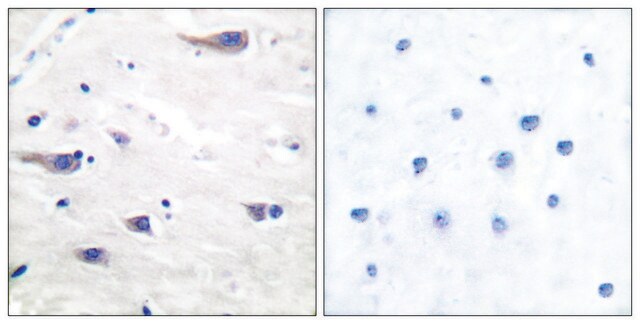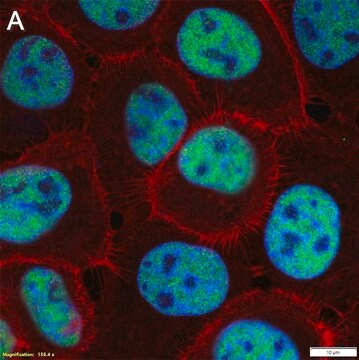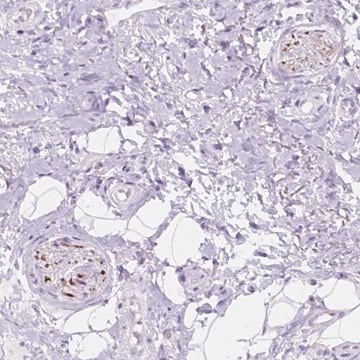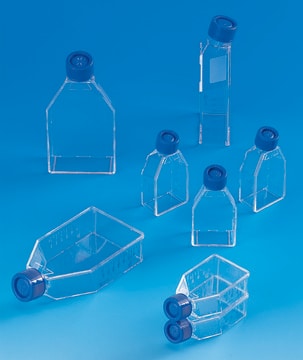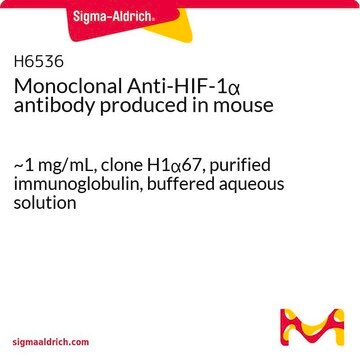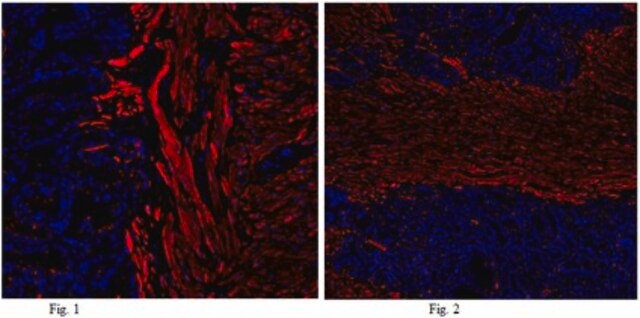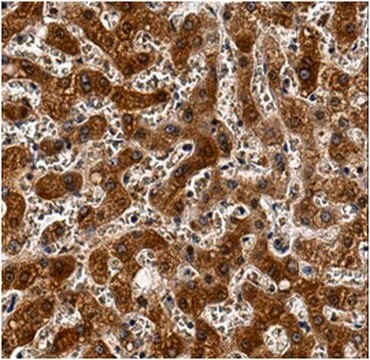MABC539
Anti-SFRP2 Antibody, clone 80.8.6, azide free
clone 80.8.6, from mouse
Synonym(s):
Secreted frizzled-related protein 2, FRP-2, sFRP-2, Secreted apoptosis-related protein 1, SARP-1
About This Item
inhibition assay
inhibition assay: suitable
Recommended Products
biological source
mouse
Quality Level
antibody form
purified antibody
antibody product type
primary antibodies
clone
80.8.6, monoclonal
species reactivity
human
technique(s)
immunohistochemistry: suitable
inhibition assay: suitable
isotype
IgG2aκ
NCBI accession no.
UniProt accession no.
shipped in
wet ice
target post-translational modification
unmodified
Gene Information
human ... SFRP2(6423)
General description
Immunogen
Application
Quality
Imunnohistochemistry Analysis: A 1:500 dilution of this antibody detected SFRP2 in human prostate and human breast cancer tissue.
Target description
Physical form
Other Notes
Not finding the right product?
Try our Product Selector Tool.
Storage Class Code
12 - Non Combustible Liquids
WGK
WGK 2
Flash Point(F)
Not applicable
Flash Point(C)
Not applicable
Regulatory Listings
Regulatory Listings are mainly provided for chemical products. Only limited information can be provided here for non-chemical products. No entry means none of the components are listed. It is the user’s obligation to ensure the safe and legal use of the product.
JAN Code
MABC539:
Certificates of Analysis (COA)
Search for Certificates of Analysis (COA) by entering the products Lot/Batch Number. Lot and Batch Numbers can be found on a product’s label following the words ‘Lot’ or ‘Batch’.
Already Own This Product?
Find documentation for the products that you have recently purchased in the Document Library.
Our team of scientists has experience in all areas of research including Life Science, Material Science, Chemical Synthesis, Chromatography, Analytical and many others.
Contact Technical Service